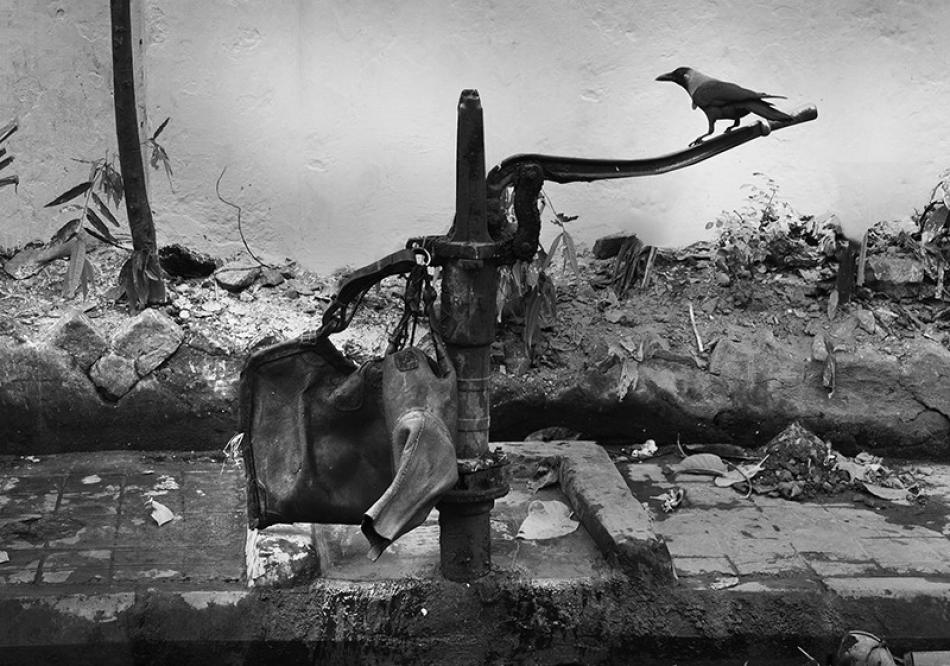NITN | @notintownlive | 27 Aug 2025, 03:39 am
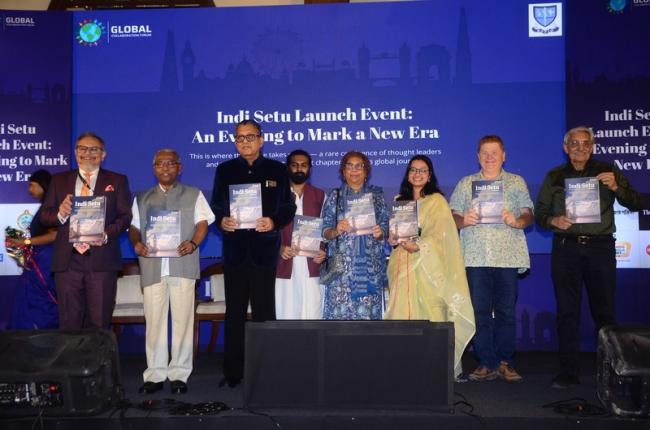 India-UK
India-UK
Thought leaders of IndiSetu attended the launch of the summit's 2025 magazine in Kolkata.. Photo: Avishek Mitra/IBNS
Kolkata: The curtain raiser of the upcoming London thought leadership summit IndiaSetu, hosted under the Global Collaboration Forum (GCF), brought together leaders from healthcare, technology, academia, and conservation on a Saturday evening to discuss India’s growth and the power of collaboration in shaping the future.
In his opening remarks, Dr. Amit Ghose, consultant urologist and founding director of the GCF, said, “India learnt the global architecture while being used as a back office.
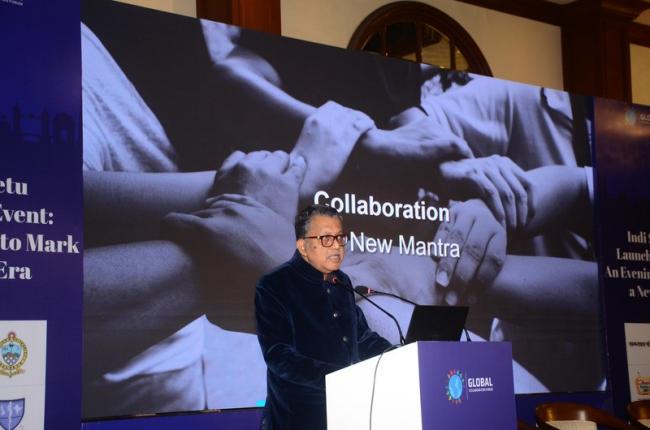 Dr. Amit Ghose walked the audience through the framework of IndiSetu 2025. Photo: Avishek Mitra/IBNS
Dr. Amit Ghose walked the audience through the framework of IndiSetu 2025. Photo: Avishek Mitra/IBNS
He introduced the framework of India Setu, highlighting its role in building global partnerships, while affirming India’s progress since Partition across multiple areas of growth and development.
Bhaarat Dave, acting British deputy high commissioner for East and Northeast India, emphasised the use of artificial intelligence (AI) in vaccine development and digital healthcare. He noted that Britain brings “safe ethics” to the world of AI, while India contributes scale and an efficient workforce.
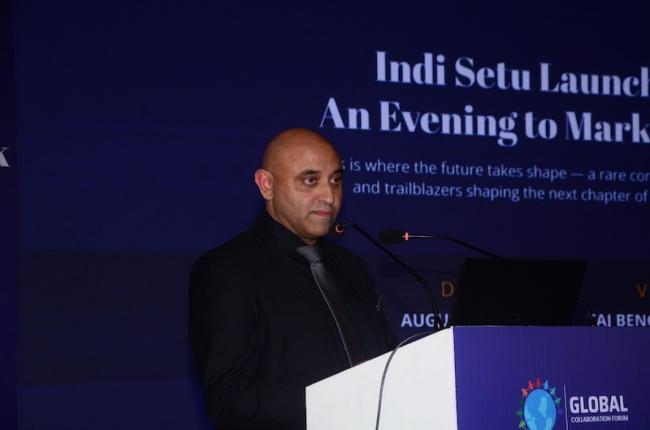 Acting Deputy High Commissioner, Bhaarat Dave spoke at the IndiSetu launch event in Kolkata on UK-India collaboration. Photo: Avishek Mitra
Acting Deputy High Commissioner, Bhaarat Dave spoke at the IndiSetu launch event in Kolkata on UK-India collaboration. Photo: Avishek Mitra
This was followed by a panel discussion on AI in healthcare featuring Jaideep Roy, former PwC leader of FS Advisory India, and Swagatham Das, professor at the Indian Statistical Institute, Kolkata.
Roy spoke about advancements in AI and the challenges of data sharing, observing that India Setu can become a global platform for such debates.
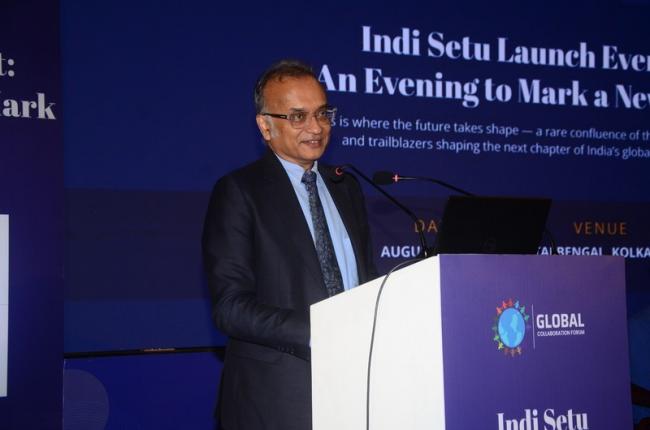 Jaideep Roy explained how this summit could be the stage for discussion on the consequences of AI. Photo: Avishek Mitra/IBNS
Jaideep Roy explained how this summit could be the stage for discussion on the consequences of AI. Photo: Avishek Mitra/IBNS
Das added that while “AI is a recent buzzword,” and showed how the technology has existed for decades.
Joining online, Dr. Prokar Dasgupta, Professor of Robotic Surgery and Urological Innovation at King’s College London, remarked that artificial intelligence can take over manual work, freeing humans to focus on creative tasks, “which will make us happy.”
A special presentation on Project Tiger was delivered by Bittu Sahgal, leading conservationist and founding editor of Sanctuary Asia.
“I am glad to be alive at a time in history when wild tigers still exist. But in this day and age, only love for tigers has hope of pulling them back from the edge of extinction,” Sahgal said.
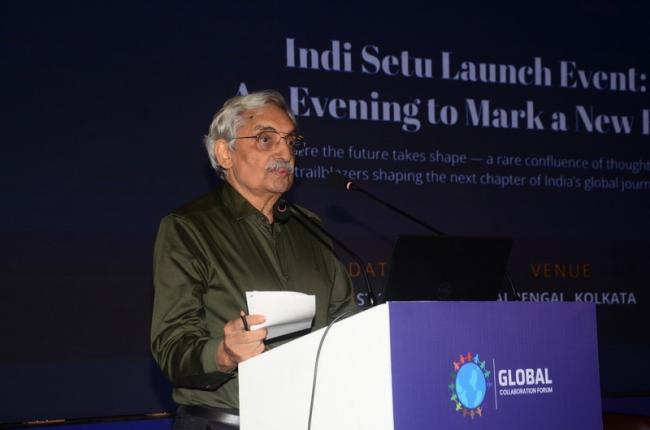 Leading conservationist Bittu Sahgal delivered a powerful presentation on Project Tiger. Photo: Avishek Mitra/IBNS
Leading conservationist Bittu Sahgal delivered a powerful presentation on Project Tiger. Photo: Avishek Mitra/IBNS
He stressed that saving tigers is fundamental to development, citing late Prime Minister Indira Gandhi’s conservation policies that banned mining, large dams, highways, hotels, and commercial forestry projects in tiger reserves.
“To the surprise and delight of sceptics, India not only ended up saving the tiger but also, with it, a host of endangered species,” he added.
Sahgal explained that tiger forests sustain more than 600 rivers even during peak summer and store vast amounts of carbon as a byproduct of non-extractive forest policies.
He concluded that the tiger is a metaphor for nature itself: “India must return to its roots and relearn what our ancient cultures taught us — respect and worship nature, and nature will protect us by revitalising our economy, food, and climate security.”
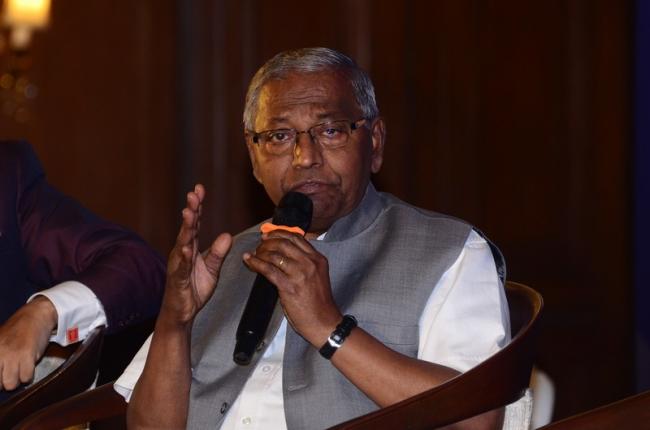 Rev. Dr. Felix Raj championed this collaboration as a necessity. Photo: Avishek Mitra/IBNS
Rev. Dr. Felix Raj championed this collaboration as a necessity. Photo: Avishek Mitra/IBNS
The programme also featured a panel discussion on “Building a Resilient Tomorrow: The Promise of Kolkata” with Rev. Dr. Felix Raj, SJ, vice-chancellor of St. Xavier’s University; Paul Walsh MBE, founder of Jungle Crows; Madhuparna Sreemany, CEO of Pathfinder Educational Institute; and Yashoroop Dey, co-founder of Citizen Research Foundation.
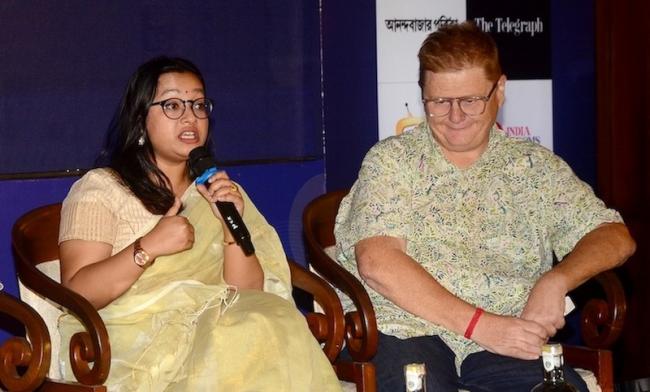 Madhuparna Sreemany, CEO of Pathfinder Educational Institute makes a point on the upcoming summit as Paul Walsh listens. Photo: Avishek Mitra/IBNS
Madhuparna Sreemany, CEO of Pathfinder Educational Institute makes a point on the upcoming summit as Paul Walsh listens. Photo: Avishek Mitra/IBNS
The discussion, moderated by Sujata Sen, CEO of Future Hope Foundation, raised concerns about Indian students’ post-study work visas and explored how India Setu can be a platform to address such issues.
The event concluded with the launch of the IndiSetu Magazine.
IndiSetu website for registration: https://indisetu-gcf.com
- ‘This Union budget is about building capacity, not chasing short-term consumption’
- AI will replace surgeons, coders — and billions of jobs, warns Sraddhalu Ranade at MCHD-SKC Memorial Lecture
- Religion without servility: Journalist Anshul Chaturvedi on why Vivekananda speaks to believers and atheists alike
- Culturist Sundeep Bhutoria unveils anthology When Gods Don't Matter at Jaipur LitFest 2026
- Kolkata CP urges elderly to stay alert against digital scams at ‘Pronam’ interaction
- Sona Incubations, Salem picks 17 startups for Rs 11 Mn DST investment, grant
- Visva-Bharati University unveils a transformational roadmap under Vice-Chancellor Dr. Probir Kumar Ghosh
- Sona College of Technology hosts Think Salem 2025: To spur startup opportunity from Tier-2 Cities
- ACM India unveils National AI Olympiad 2026 to spot school talent for global AI stage
- Reject Macaulayan education, reclaim Indian values: H M Bangur’s big World Hindu Economic Forum pitch
Gurgaon : Air India, India’s leading global airline, has unveiled a completely refreshed beverage collection, one that brings together some of the world’s most celebrated wines and spirits at 35,000 feet on international routes.
Indian airline major Air India today announced a significant enhancement to its popular Mumbai-Frankfurt route, with the deployment of its newly delivered, first line-fit (or made-for-Air India)
Saudia, the national flag carrier of Saudi Arabia, and Air India, India’s leading global airline, have signed a codeshare agreement that will take effect in February.


